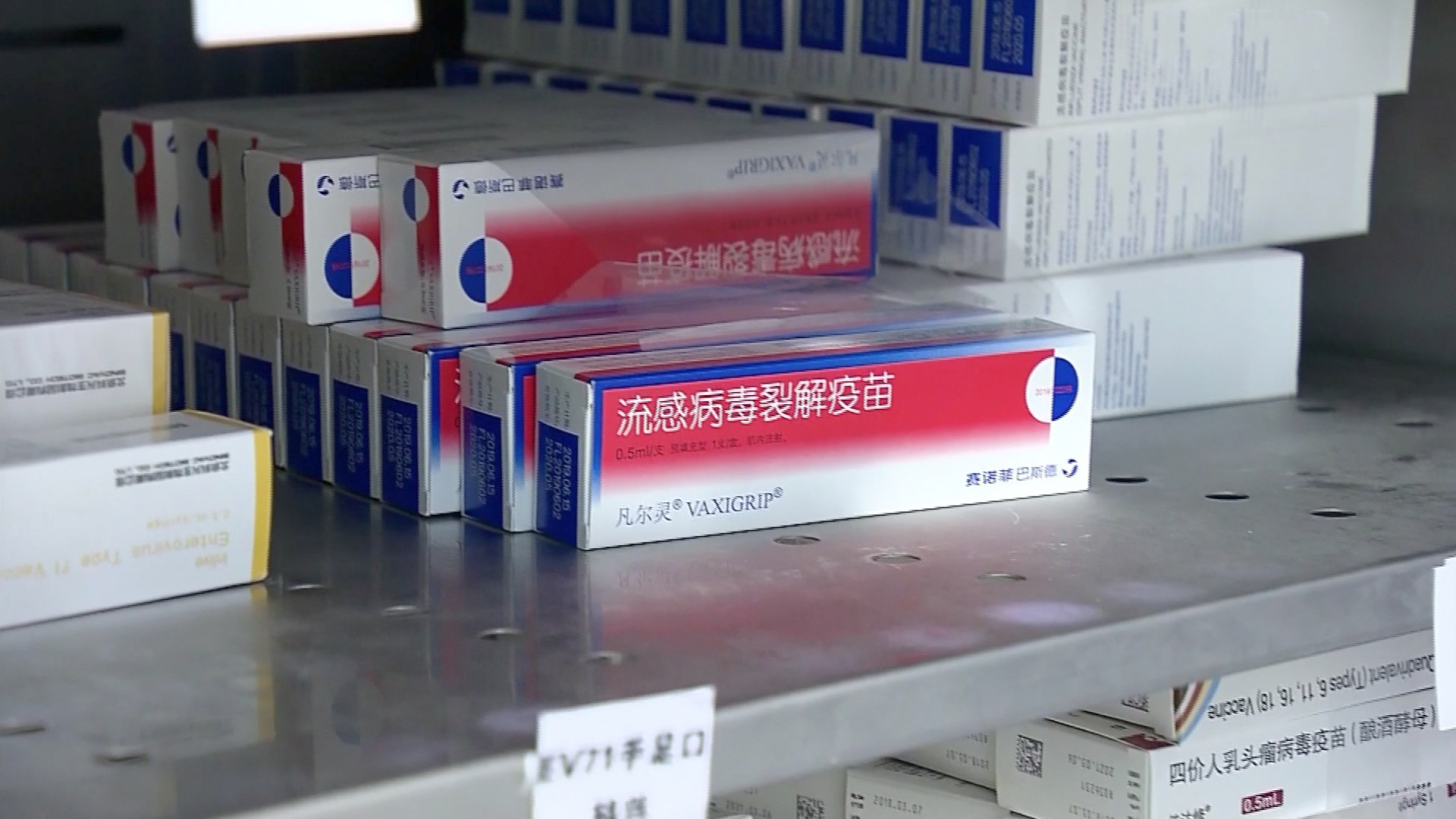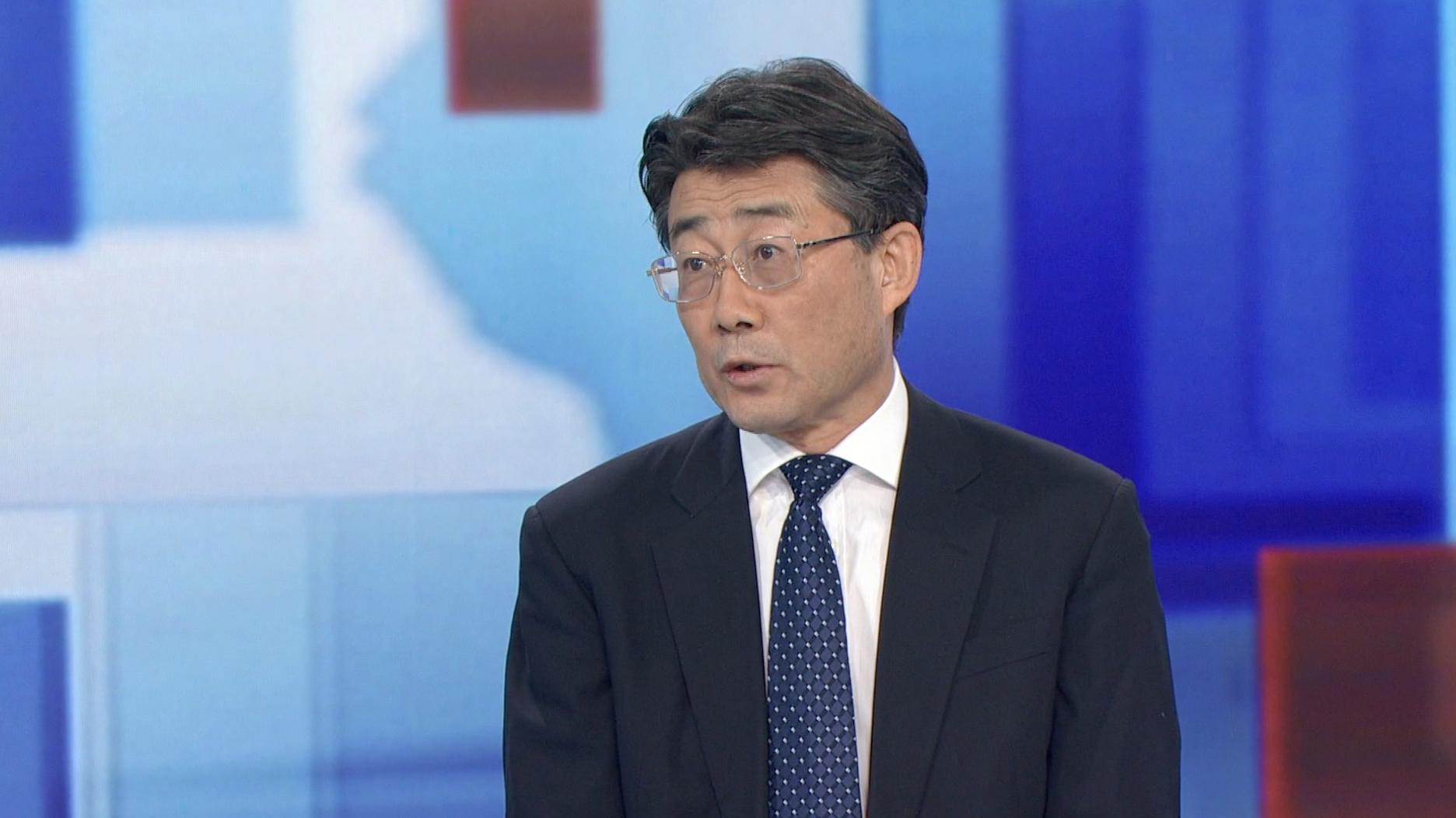The world is racing against time to find vaccines and drugs for COVID-19. For this goal, China has made arduous efforts in developing vaccines, adopting multiple technological approaches and pulling national resources to fast track the process. So far, some vaccine candidates have started phase three clinical trials, with China contributing to the frontrunners.
But flu season is right around the corner. As public health officials look to fall and winter, the specter of a new surge of COVID-19 gives them chills. There is a scenario they dread even more: A severe flu season too, resulting in a "twindemic." So questions are frequently asked, "Should people get a flu shot during COVID-19?"
Dr. Gao Fu, world renowned virologist, immunologist and director of Chinese Center for Disease Control and Prevention, encouraged this when he sat down with CGTN anchor Tian Wei.
02:43

"I am still encouraging people to be vaccinated with the flu vaccine. That's a big challenge for the public health at the moment. Because we are approaching autumn, we are predicting we will have a situation or scenario of COVID-19 mixed with flu."
The World Health Organization (WHO) has so far estimated that the crude mortality ratio for COVID-19 is between three percent and four percent, while mortality is usually well below 0.1 percent for seasonal influenza. During the 2018-2019 flu season, influenza-pneumonia resulted in nearly 500,000 hospitalizations, among the leading causes of death in the U.S. In any case, experts suggest getting a flu shot – to better protect against a perfect storm of influenza and coronavirus as we await a COVID-19 vaccine.
"We still don't know the safety and efficacy. But for the flu at least we know it's safe and with some percentage of efficacy, and also because of the years, we know it works and the quality control is good. So for those three major factors for any vaccines I encourage people to vaccinate flu first and wait for COVID-19," said Gao.
Dr. Gao also discussed herd immunity, which has emerged as a controversial topic and involves deliberately allowing the coronavirus to spread and build up population resistance more quickly while protecting the most vulnerable.
But some countries are insisting to move towards coronavirus policies that are in line with a herd immunity strategy.
02:09

"To achieve herd immunity, you can either go via natural infection," said Dr. Gao, "but also you can say that, on the other hand, you can have it by vaccination."
Maria Van Kerkhove, the WHO's technical lead for the coronavirus response, said during a media briefing in Geneva last week that "herd immunity" is typically discussed in the context of vaccinations, not as a response to a pandemic, which has echoed Dr. Gao's opinion.
Also as herd immunity happens when enough people have developed immunity to a particular infectious disease that the risk of further community transmission is either eliminated or significantly reduced, it requires a certain percentage of the population to be immune.
Dr. Gao's estimation of this is 70 percent. "From current data, for our current transmissibility, we estimate we might, I use the word 'might,' we might need a 70 percent."